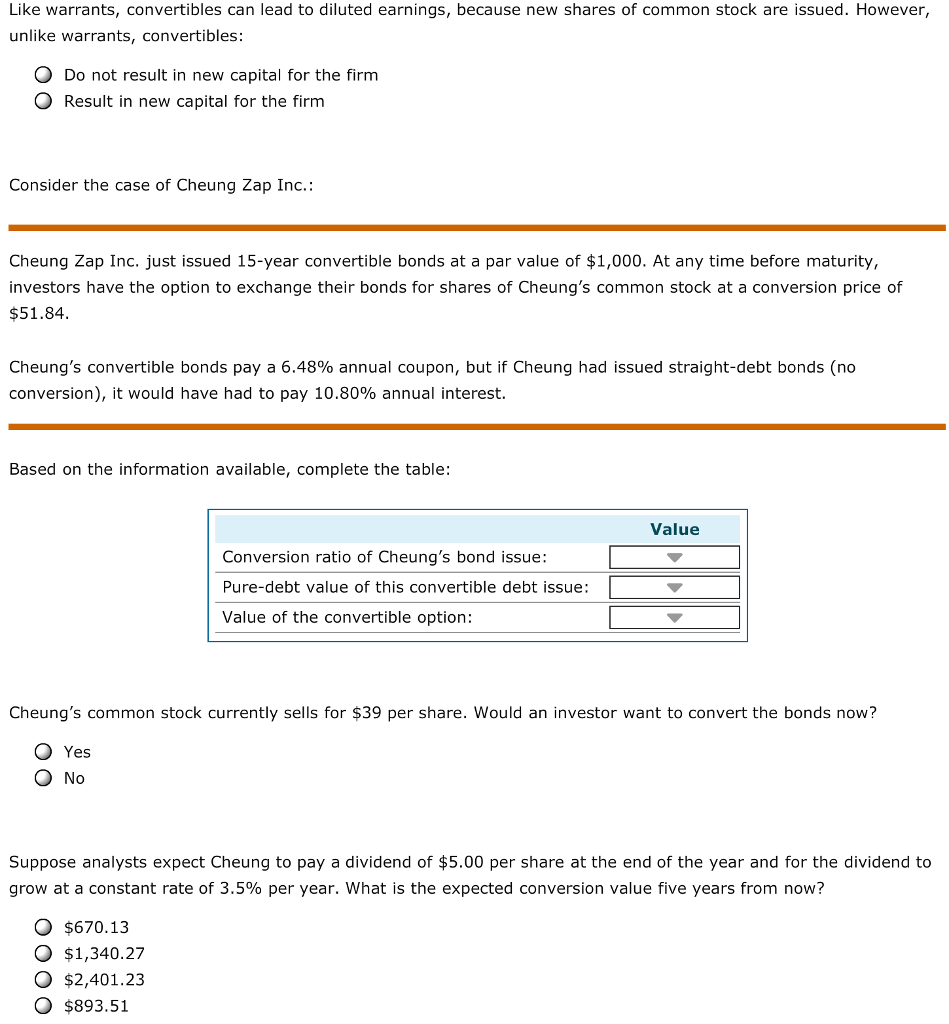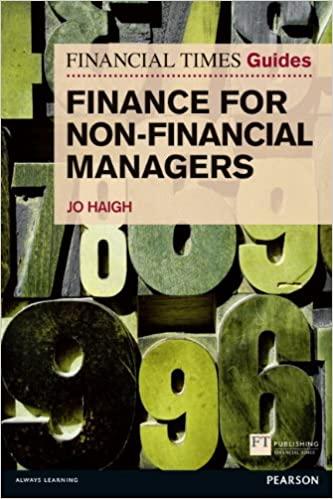
Like warrants, convertibles can lead to diluted earnings, because new shares of common stock are issued. However, unlike warrants, convertibles: Do not result in new capital for the firm Result in new capital for the firm Consider the case of Cheung Zap Inc.: Cheung Zap Inc. just issued 15-year convertible bonds at a par value of $1,000. At any time before maturity, investors have the option to exchange their bonds for shares of Cheung's common stock at a conversion price of $51.84. Cheung's convertible bonds pay a 6.48% annual coupon, but if Cheung had issued straight-debt bonds (no conversion), it would have had to pay 10.80% annual interest. Based on the information available, complete the table: Cheung's Common stock currently sells for $39 per share. Would an investor want to convert the bonds now? Yes No Suppose analysts expect Cheung to pay a dividend of $5.00 per share at the end of the year and for the dividend to grow at a constant rate of 3.5% per year. What is the expected conversion value five years from now? $670.13 $1, 340.27 $2, 401.23 $893.51 Like warrants, convertibles can lead to diluted earnings, because new shares of common stock are issued. However, unlike warrants, convertibles: Do not result in new capital for the firm Result in new capital for the firm Consider the case of Cheung Zap Inc.: Cheung Zap Inc. just issued 15-year convertible bonds at a par value of $1,000. At any time before maturity, investors have the option to exchange their bonds for shares of Cheung's common stock at a conversion price of $51.84. Cheung's convertible bonds pay a 6.48% annual coupon, but if Cheung had issued straight-debt bonds (no conversion), it would have had to pay 10.80% annual interest. Based on the information available, complete the table: Cheung's Common stock currently sells for $39 per share. Would an investor want to convert the bonds now? Yes No Suppose analysts expect Cheung to pay a dividend of $5.00 per share at the end of the year and for the dividend to grow at a constant rate of 3.5% per year. What is the expected conversion value five years from now? $670.13 $1, 340.27 $2, 401.23 $893.51







